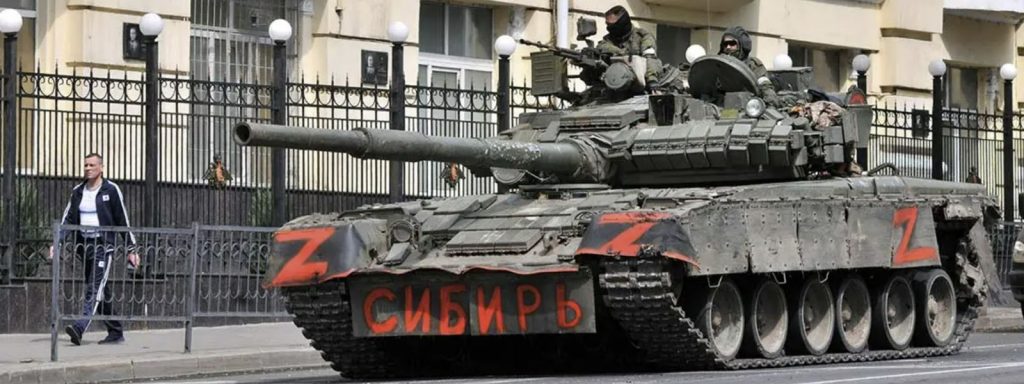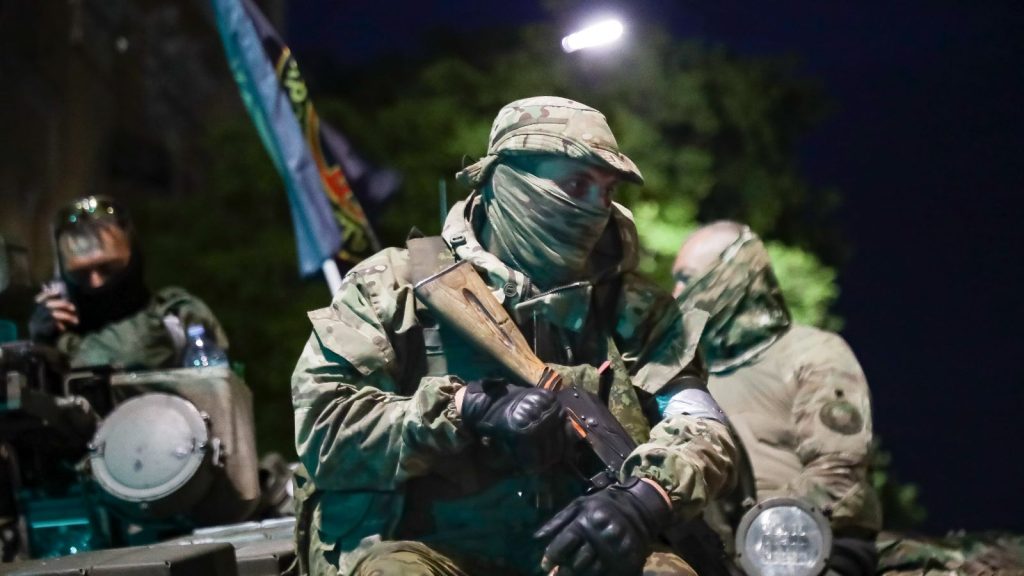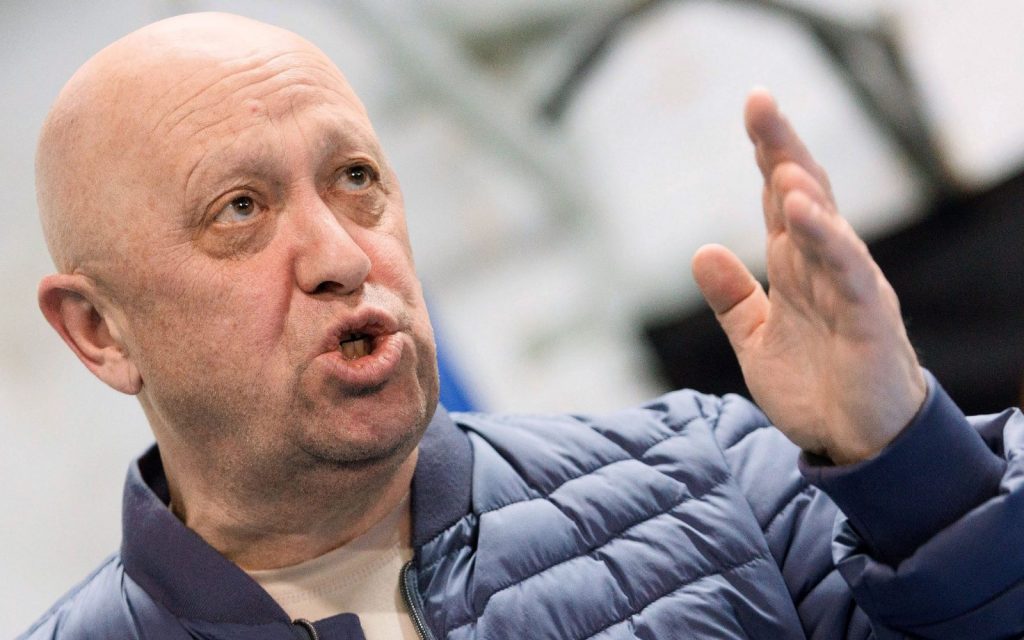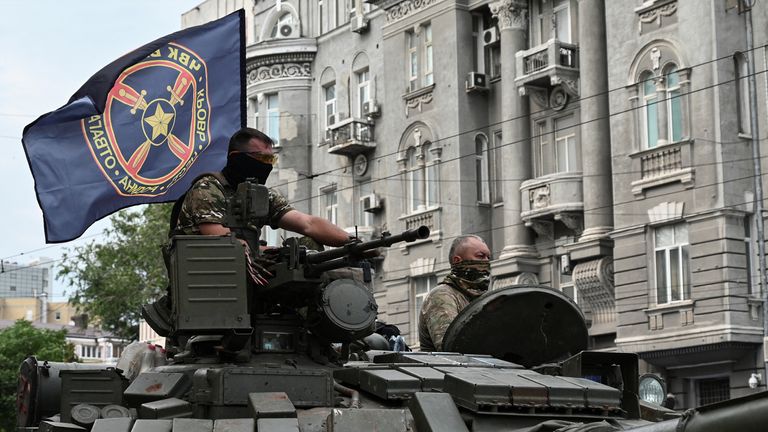Products You May Like
By
Howard Bloom
In my opinion, the sooner Vladimir Putin leaves the planet the better. He’s a mass murderer. But the fact is that Putin has pulled off a miracle.

The news media says that the mutiny against Russia’s military leaders on Saturday June 24 shows Putin’s weakness. But that’s dead wrong. The mutiny shows Vladimir Putin’s strength. Why?
On Saturday, it looked as if Russia was on the verge of civil war. But Putin resolved the situation. In a mere 36 hours. With the loss of only thirteen lives. In the 21st century, no uprising of this kind has been extinguished with such little bloodshed.
How did Putin pull this off? The credit goes to three of Putin’s abilities.
Number one is Putin’s ability to mobilize allies. Putin used Belarusian leader and ally Aleksandr Lukashenko as a puppet to negotiate with the leader of the uprising, Yevgeny Prigozhin, convincing him to turn his Wagner mercenary troops around when they were within 125 miles of Moscow. And convincing Prigozhin to take refuge in Belarus.
In the days since the Saturday Mutiny, Putin has strengthened the alliances that saved him. Monday, he met with the heads of his five security agencies, Tuesday he met with the police and military “units which” Putin says, “ensured law and order during the mutiny.” He met with them to thank them. Tuesday Putin also met via video with the 10th Forum of the Russian and Belarusian Regions.

And in the first three days of this week, he has talked to the president of the United Arab Emirates, the crown prince of Saudi Arabia, and the King of Bahrain, all of whom called him to express their solidarity.
But Putin did more than reinforce his alliances.
He used ability number two. He used the carrot and the stick. On Friday, when Yevgeny Prigozhin first hinted about his armed revolt on his Telegram channel, the Federal Security Service, Putin’s FBI, launched a criminal probe into Prigozhin’s calls for a mutiny.
Saturday night, as Prigozhin’s troops were barreling down the highway to Moscow, Putin gave a fire-and-brimstone speech warning that “our actions to defend the fatherland from such a threat will be brutal.” Putin’s reputation for killing his enemies made that warning blood-curdling.
That’s when Putin recruited Belarus’s Lukashenko to act as his finger puppet and to persuade Prigozhin that in exchange for suspension of this “brutal” punishment, he should turn his troops around and send them back to their base camp. The negotiation worked.
And Putin lived up to his end of the deal. In the words of the Russian news agency, Tass, a “Kremlin Spokesman… said that a criminal case against the Wagner chief would be dropped.” In addition, the Russian authorities pledged not to prosecute those Wagner paramilitary fighters who took part in the mutiny in light of their ‘frontline achievements’” in Ukraine.

Then there’s Putin’s ability number three: his grasp of history. Putin summed up the crisis accurately in his Tuesday address thanking military and security groups. “Armed rebellions, are usually followed by total chaos and civil war. This is what you have prevented,” he said, “You have avoided ‘civilian casualties.’” Here’s where Putin’s knowledge of history comes in. The mutiny, said Putin, was “a stab in the back of our country and our people. It was such a blow,” Putin explained, “that was dealt to Russia in 1917 when the country was fighting in World War I, but its victory was stolen. Intrigues, bickering and politicking… turned out to be the greatest catastrophe,” leading to “the destruction of the army and the state, loss of huge territories, resulting in a tragedy and a civil war.”
1.2 million people died in Russia’s 1918-1921 civil war. But Putin does not mourn the people. He mourns the loss of territory. He wants to restore the Russian Empire.
Nonetheless, in the last seven days Putin has sidestepped slaughter. He has pulled off an almost impossible victory. Using the power of alliances, the carrot and the stick, and a knowledge of history.
References:
http://en.kremlin.ru/events/president/news/71530
http://en.kremlin.ru/events/president/news/71533
https://tass.com/world/1640095
https://tass.com/politics/1639879
https://www.wsj.com/articles/wagners-prigozhin-planned-to-capture-russian-military-leaders-805345cf
https://www.aljazeera.com/news/2023/6/26/wagner-mercenary-leader-defends-march-on-moscow
________
Howard Bloom of the Howard Bloom Institute has been called the Einstein, Newton, and Freud of the 21st century by Britain’s Channel 4 TV. One of his seven books–Global Brain—was the subject of a symposium thrown by the Office of the Secretary of Defense including representatives from the State Department, the Energy Department, DARPA, IBM, and MIT. His work has been published in The Washington Post, The Wall Street Journal, Wired, Psychology Today, and the Scientific American. He does news commentary at 1:06 am Eastern Time every Wednesday night on 545 radio stations on Coast to Coast AM. For more, see http://howardbloom.institute.
